
The American Mathematical Society (AMS) is an association of professional mathematicians dedicated to the interests of mathematical research and scholarship, and serves the national and international community through its publications, meetings, advocacy and other programs.

Charles Homer Haskins was a history professor at Harvard University. He was an American historian of the Middle Ages, and advisor to U.S. President Woodrow Wilson. He is widely recognized as the first academic medieval historian in the United States, and the Haskins Medal was named in his honor.
Francis Christopher Oakley is the former Edward Dorr Griffin Professor of the History of ideas at Williams College, President Emeritus of Williams College and President Emeritus of the American Council of Learned Societies, New York. He also served as Interim Director of the Sterling and Francine Clark Art Institute.
The American Council of Learned Societies (ACLS) is a private, nonprofit federation of 75 scholarly organizations in the humanities and related social sciences founded in 1919. It is best known for its fellowship competitions which provide a range of opportunities for scholars in the humanities and related social sciences at all career stages, from graduate students to distinguished professors to independent scholars, working with a number of disciplines and methodologies in the U.S. and abroad.

Theodor Meron, is an American judge. He served as a judge of the International Criminal Tribunal for the former Yugoslavia (ICTY), International Criminal Tribunal for Rwanda (ICTR), and the International Residual Mechanism for Criminal Tribunals (Mechanism). He served as President of the ICTY four times and inaugural President of the Mechanism for three terms (2012–19).
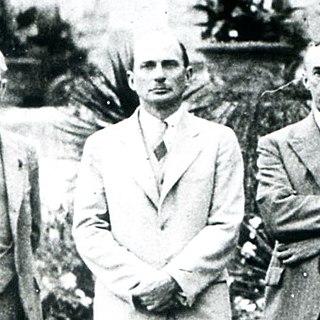
Roger Sherman Loomis (1887–1966) was an American scholar and one of the foremost authorities on medieval and Arthurian literature. Loomis is perhaps best known for showing the roots of Arthurian legend, in particular the Holy Grail, in native Celtic mythology.
Sir Frederick Maurice Powicke (1879–1963) was an English medieval historian. He was a fellow of Merton College, Oxford, a professor at Queen's University, Belfast, and the Victoria University of Manchester, and from 1928 until his retirement Regius Professor at the University of Oxford. He was made a Knight Bachelor in 1946.
David Herlihy was an American historian who wrote on medieval and renaissance life. He was married to historian Patricia Herlihy; one of their sons is the historian of bicycles, David V. Herlihy. Topics of his included domestic life, especially the roles of women, and the changing structure of the family. He studied for his bachelor's degree at the University of San Francisco, received a doctoral degree from Yale University and taught at Bryn Mawr College, the University of Wisconsin, Harvard and Brown.
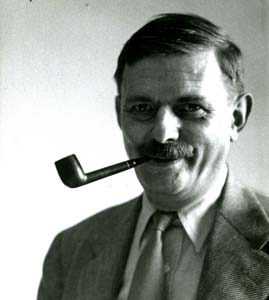
Sidney Painter was an American medievalist and historian. He was a fellow of the Mediaeval Academy and professor of history and chairman of the department of history at Johns Hopkins University.
The Academy of Social Sciences is a representative body for social sciences in the United Kingdom. The Academy promotes social science through its sponsorship of the Campaign for Social Science, its links with Government on a variety of matters, and its own policy work in issuing public comment, responding to official consultations, and organising meetings and events about social science. It confers the title of Fellow upon nominated social scientists following a process of peer review. The Academy comprises over 1000 Fellows and 41 learned societies based in the UK and Europe.
Caroline Walker Bynum, FBA is a Medieval scholar from the United States. She is a University Professor emerita at Columbia University and Professor emerita of Western Medieval History at the Institute for Advanced Study in Princeton, New Jersey. She was the first woman to be appointed University Professor at Columbia. She is former Dean of Columbia's School of General Studies, served as president of the American Historical Association in 1996, and President of the Medieval Academy of America in 1997–1998.

Thomas F. Madden is an American historian, a former Chair of the History Department at Saint Louis University in St. Louis, Missouri, and Director of Saint Louis University's Center for Medieval and Renaissance Studies. A specialist on the Crusades, he has often commented in the popular media after the events of September 11, to discuss topics such as how Muslims have viewed the medieval Crusades and their parallels to today's interventions in the Middle East. He has frequently appeared in the media, as a consultant for various programs on the History Channel and National Public Radio. In 2007, he was awarded the Haskins Medal from the Medieval Academy of America, for his book Enrico Dandolo and the Rise of Venice, also a "Book of the Month" selection by the BBC History magazine. In 2012, he was named a Fellow of the John Simon Guggenheim Memorial Foundation. In 2018, he was named a National Endowment for the Humanities Public Scholar.
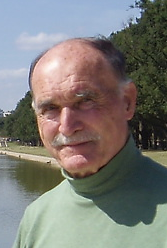
Brian Tierney was an historian and a medievalist. He was educated at Pembroke College, Cambridge. He was a member of the faculty of the Catholic University of America for eight years until becoming professor of medieval history at Cornell University in 1959, becoming the Goldwin Smith Professor of Medieval History in 1969 and the first Bowmar Professor of Humanistic Studies in 1977.
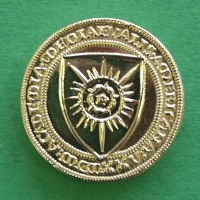
The Haskins Medal is an annual medal awarded by the Medieval Academy of America. It is awarded for the production of a distinguished book in the field of medieval studies.
Kenneth Meyer Setton was an American historian and an expert on the history of medieval Europe, particularly the Crusades.
A memory institution is an organization maintaining a repository of public knowledge, a generic term used about institutions such as libraries, archives, heritage institutions, aquaria and arboreta, and zoological and botanical gardens, as well as providers of digital libraries and data aggregation services which serve as memories for given societies or mankind. Memory institutions serve the purpose of documenting, contextualizing, preserving and indexing elements of human culture and collective memory. These institutions allow and enable society to better understand themselves, their past, and how the past impacts their future. These repositories are ultimately preservers of communities, languages, cultures, customs, tribes, and individuality. Memory institutions are repositories of knowledge, while also being actors of the transitions of knowledge and memory to the community. These institutions ultimately remain some form of collective memory. Increasingly such institutions are considered as a part of a unified documentation and information science perspective.
Barbara Jane Newman is an American medievalist, literary critic, religious historian, and author. She is Professor of English and Religion, and John Evans Professor of Latin, at Northwestern University. Newman was elected in 2017 to the American Philosophical Society.
Monica H. Green is an author and a historian who was a professor of history at Arizona State University. She is an expert in the history of women's health care in premodern Europe, medicine and gender, and she specialises in the history of infectious diseases in the pre-modern period.
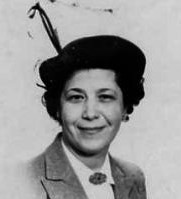
Pearl Kibre was an American historian. She won a Guggenheim Fellowship in 1950 for her work on medieval science and universities.









